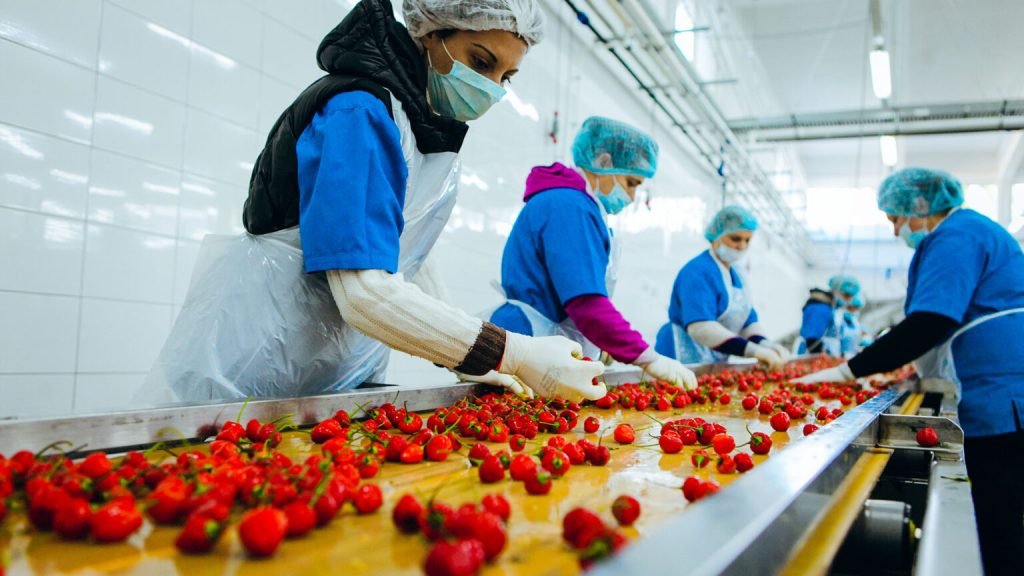Do you know how well your current food safety system meets the global standards? Are your processes ready for an audit?
Understanding how an SQF audit works helps close the gap between meeting rules and building real food safety confidence. If you run a food business whether as a manufacturer or distributor or supplier then staying compliant means more than just ticking boxes. It builds trust with your customers while protecting your reputation and reducing risk for everyone who eats your product.
Let’s explore in this blog how the SQF process plays a key role in helping businesses improve their food safety management.
What is SQF Audit and Why Does it Matter?
An SQF or Safe Quality Food Audit checks how well your food safety and quality systems are working. It is a certification process that meets the standards of the Global Food Safety Initiative or GFSI. This makes it a reliable method that businesses around the world use to show their food production is safe and consistent.
Purpose of the SQF
The main purpose of an SQF is to confirm that your food safety system meets the rules in the SQF Code. This includes how you keep records as well as how you train staff and run daily operations. It supports companies that want to:
- Prevent food contamination and reduce product recalls
- Build customer and stakeholder confidence
- Access international markets that require GFSI recognized certification
Key Elements Evaluated
During the audit the certified auditors examine elements such as:
- Management commitment to food safety
- Hazard analysis and critical control points (HACCP)
- Traceability and recall readiness
- Sanitation and hygiene practices
- Supplier approval programs
- Training programs
How Can SQF Help To Enhance Your Food Safety Standards
Promotes Accountability Across All Levels
An SQF helps build clear roles and responsibilities across your entire operation. From frontline workers to leadership everyone stays aligned with food safety goals while following consistent procedures that reduce confusion and risk.
Identifies Gaps Before They Become Problems
A pre certification SQF helps catch weak spots early. It often highlights issues like missed training steps or incomplete cleaning logs while also pointing out gaps in documentation that might lead to future trouble if ignored.
Validates HACCP and Preventive Controls
The audit looks at how well your hazard control measures are working. It checks both your records and your day-to-day practices so your food safety efforts are proven effective not just written in a file.
Encourages Continuous Improvement
SQF certification is not a one-time task. It asks for regular self-checks while tracking fixes and reviewing systems so your team keeps improving and stays ready for new safety challenges as the business grows.
Builds Market Reputation and Trust
When your product shows the SQF logo it gives buyers confidence. It shows your food has passed strict safety checks and it helps retailers choose suppliers they can count on to protect their own brand name.
Enhances International Trade Opportunities
SQF works under GFSI which means many global buyers already accept it. If you ship to Europe or North America or Asia this certification helps you meet requirements faster so you can get into new markets without delay.
Frequently Asked Questions
What is the purpose of the SQF audit?
The SQF checks if a company’s food safety system follows the rules in the SQF Code. It helps protect consumers while spotting and lowering food safety risks during every step of production.
What is the SQF standard for food safety?
The SQF standard covers key areas like food safety basics as well as HACCP plans and sanitation practices with staff training and supplier checks. It guides businesses as they set up and maintain strong food safety systems.
What are the benefits of SQF?
SQF helps lower the chances of recalls while making daily processes smoother and opening doors to more markets. It also helps build customer trust and keeps your operations in line with global food safety rules.
What is the SQF audit checklist?
The checklist looks at your records while also checking the site and talking with your team. It includes tests for traceability and recalls as well as checks on sanitation, allergen safety, and key control points.
What is the difference between SQF and FDA?
The FDA handles food laws and inspections in the United States. SQF works differently since it is a voluntary program under GFSI. FDA rules are required by law while SQF gives a deeper review of your food safety system through third party checks.
Are You Ready to Strengthen Your Food Safety System?
Is your business ready for the next step toward stronger food safety and wider recognition? An SQF gives you a chance to spot weak areas as well as lower risks and gain your customers’ trust. When you have clear safety steps and smart risk control with a certification that global buyers respect then your business is ready to grow with more confidence.
Sanitation Specialists make this process easier as they offer help with planning as well as preparing and improving food safety systems across all levels of the industry.
Take action to reinforce your food safety efforts and prepare for your next SQF Audit with the right expertise by your side today!











































